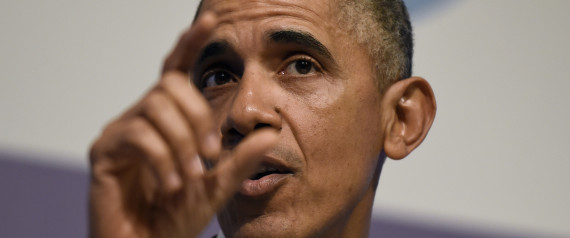The Planned Parenthood Health Center in New Orleans can be found inside a modest house in the uptown neighborhood of Louisiana's largest city. If you didn't see the sign out front, it would be easy to mistake the small building for one of the shotgun-style residences lining the street. Still, thousands of people rely on the clinic for reproductive health-care services ranging from sexually transmitted disease and cervical cancer screenings to treatment of urinary tract infections. The clinic does not perform abortions, nor does its sister facility in Baton Rouge.
Democracy Gone Astray
Democracy, being a human construct, needs to be thought of as directionality rather than an object. As such, to understand it requires not so much a description of existing structures and/or other related phenomena but a declaration of intentionality.
This blog aims at creating labeled lists of published infringements of such intentionality, of points in time where democracy strays from its intended directionality. In addition to outright infringements, this blog also collects important contemporary information and/or discussions that impact our socio-political landscape.
All the posts here were published in the electronic media – main-stream as well as fringe, and maintain links to the original texts.
[NOTE: Due to changes I haven't caught on time in the blogging software, all of the 'Original Article' links were nullified between September 11, 2012 and December 11, 2012. My apologies.]
Sunday, January 10, 2016
Despite Atrocities, U.S. Approves $1.29 Billion Arms Sale to Saudi Arabia
The Pentagon announced on Monday that the U.S. has approved a $1.29 billion arms sale to Saudi Arabia, despite widespread mounting evidence of the country’s mass atrocities and possible war crimes in neighboring Yemen.
The U.S. State Department on Friday approved the sale of over 10,000 bombs, munitions, and weapons parts produced by Boeing and Raytheon. This includes 5,200 Paveway II “laser guided” and 12,000 “general purpose” bombs. “Bunker Busters,” also included in the deal, are designed to destroy concrete structures.
The U.S. State Department on Friday approved the sale of over 10,000 bombs, munitions, and weapons parts produced by Boeing and Raytheon. This includes 5,200 Paveway II “laser guided” and 12,000 “general purpose” bombs. “Bunker Busters,” also included in the deal, are designed to destroy concrete structures.
Taking the fight to Islamic State doesn’t have to mean airstrikes
Friday’s horrific attacks by Islamic State-linked terrorists in Paris demonstrated once again the group’s capacity and desire for sophisticated attacks outside of Syria and Iraq. The events in France, the bombing of a Russian airliner and the recent attack in Beirut have together resulted in significant changes to the international campaign against IS in Syria and Iraq.
On Sunday night, French warplanes launched their most significant bombing missions to date against IS in Syria, where the attacks were organized. On Monday, American aircraft for the first time bombed trucks the organization was using to smuggle oil. The French strikes represent an increase in the intensity of the air campaign, while those by the United States signal an expansion of the mission to IS’ strategic infrastructure, which previously had gone untouched due to fears of incurring civilian casualties.
On Sunday night, French warplanes launched their most significant bombing missions to date against IS in Syria, where the attacks were organized. On Monday, American aircraft for the first time bombed trucks the organization was using to smuggle oil. The French strikes represent an increase in the intensity of the air campaign, while those by the United States signal an expansion of the mission to IS’ strategic infrastructure, which previously had gone untouched due to fears of incurring civilian casualties.
Opposed to Site C, NDP Has a Plan B
Instead of building the controversial Site C dam on the Peace River, a British Columbia New Democratic Party government would spread jobs around the province by retrofitting buildings and supporting renewable energy projects, party leader John Horgan is announcing today.
The announcement provides more detail on a plan Horgan mentioned during his Nov. 7 speech to the NDP convention. "There are a whole range of options we're going to put forward," Horgan said following that speech.
The announcement provides more detail on a plan Horgan mentioned during his Nov. 7 speech to the NDP convention. "There are a whole range of options we're going to put forward," Horgan said following that speech.
Canadian Food Bank Use Rising Among Children, Seniors: Report
OTTAWA — Food Banks Canada is using its annual report on the number of people using food banks in the country to push anew for the federal and provincial governments to do away with the social assistance programs.
The group wants to see the existing bureaucracies that oversee social benefits, such as disability payments, instead funnel all the savings into tax measures that would put more money into the hands of low-income earners.
The group wants to see the existing bureaucracies that oversee social benefits, such as disability payments, instead funnel all the savings into tax measures that would put more money into the hands of low-income earners.
Mandated by the Liberal government: Conservative economics
In June 1966 I joined the Department of Finance in Ottawa where I was assigned to international programs. Canada had committed to spending one per cent of GDP on international development. GDP was growing so fast it was hard for federal government spending on foreign aid (as it was then called) to catch up, and in fact it never did. Successive governments changed the target, and then abandoned it, even as growth faded, and was replaced with the economic stagnation of today.
What makes an economy grow? In 1966 the unemployment rate was the lowest in the postwar period, and employment growth had been strong for years.
Obama and Post-Constitutional America
Actions that infringe on the Constitution and compromise civil liberties are now a troubling feature of American public life. Most derive from the collective terror psychosis; others are associated with the undue influence of financial interests. The overall weakening of the country's dedication to principle and the drifting attention of our political class are critical facilitating factors.
To Defeat ISIS, We Must Call Both Western and Muslim Leaders to Account
What happened in Paris on November 13 has happened before, in a shopping district of Beirut on November 12, in the skies over Egypt on October 31, at a cultural center in Turkey on July 20, a beach resort in Tunisia on June 26—and nearly every day in Syria for the last four years.
The scenario is by now familiar to all of us. News of the killings will appear on television and radio. There will be cries of horror and sorrow, a few hashtags on Twitter, perhaps even a change of avatars on Facebook. Our leaders will make staunch promises to bring the terrorists to justice, while also claiming greater power of surveillance over their citizens. And then life will resume exactly as before.
The scenario is by now familiar to all of us. News of the killings will appear on television and radio. There will be cries of horror and sorrow, a few hashtags on Twitter, perhaps even a change of avatars on Facebook. Our leaders will make staunch promises to bring the terrorists to justice, while also claiming greater power of surveillance over their citizens. And then life will resume exactly as before.
There Is Only One Way to Destroy ISIS
Paris is just the beginning. The devastating attacks claimed by ISIS that killed scores in the French capital last week are a sign of things to come and a clear indication that efforts to combat this scourge have been a failure thus far.
The “global war on terror,” launched by the Bush administration after September 11 and continued by the Obama administration, has been an abject failure by any objective measure. Terrorism today is far more prevalent around the globe than it has ever been, in large part because of some of the policies of the American “war on terror.” With ISIS metastasizing around the globe, we seem further away from the objective than ever.
The “global war on terror,” launched by the Bush administration after September 11 and continued by the Obama administration, has been an abject failure by any objective measure. Terrorism today is far more prevalent around the globe than it has ever been, in large part because of some of the policies of the American “war on terror.” With ISIS metastasizing around the globe, we seem further away from the objective than ever.
Bill 6, Alberta's new farm safety legislation, will be a test both for the NDP Government and the Wildrose Opposition
It's an embarrassing blot on the record of successive Progressive Conservative governments and the premiers who led them that Alberta farm workers have had to wait so many years for common sense farm safety legislation.
Under the Tories, animals had more rights than farm workers in the only Canadian province where farm work was exempt from health and safety laws, farm employees could not legally refuse unsafe work, and anyone who worked as an employee on a farm, no matter how big, had no access to Workers Compensation. Child labour laws? No such thing on the farms of Tory Alberta either.
Under the so-called Farming and Ranching Exemption, the government's health and safety inspectors weren't even allowed to conduct an investigation when a farm worker or a child was killed or seriously injured. Pleas to fix even that, which could have been done through a simple cabinet order, fell on deaf Tory ears.
Why TPP Is a Canadian Digital Policy Failure
The official release of the Trans Pacific Partnership (TPP), a global trade agreement between 12 countries including Canada, the United States, and Japan, has sparked a heated public debate over the merits of the deal. Leading the opposition is Research in Motion mogul Jim Balsillie, who has described the TPP as one of Canada's worst-ever policy moves that could cost the country billions of dollars.
As Canadians assess the 6,000-page agreement, the implications for digital policies such as copyright and privacy should command considerable attention. On those fronts, the agreement appears to be a major failure. Canadian negotiators adopted a defensive strategy by seeking to maintain existing national laws and doing little to extend Canadian policies to other countries. The result is a deal that the U.S. has rightly promoted as "Made in America."
As Canadians assess the 6,000-page agreement, the implications for digital policies such as copyright and privacy should command considerable attention. On those fronts, the agreement appears to be a major failure. Canadian negotiators adopted a defensive strategy by seeking to maintain existing national laws and doing little to extend Canadian policies to other countries. The result is a deal that the U.S. has rightly promoted as "Made in America."
Subscribe to:
Comments (Atom)










